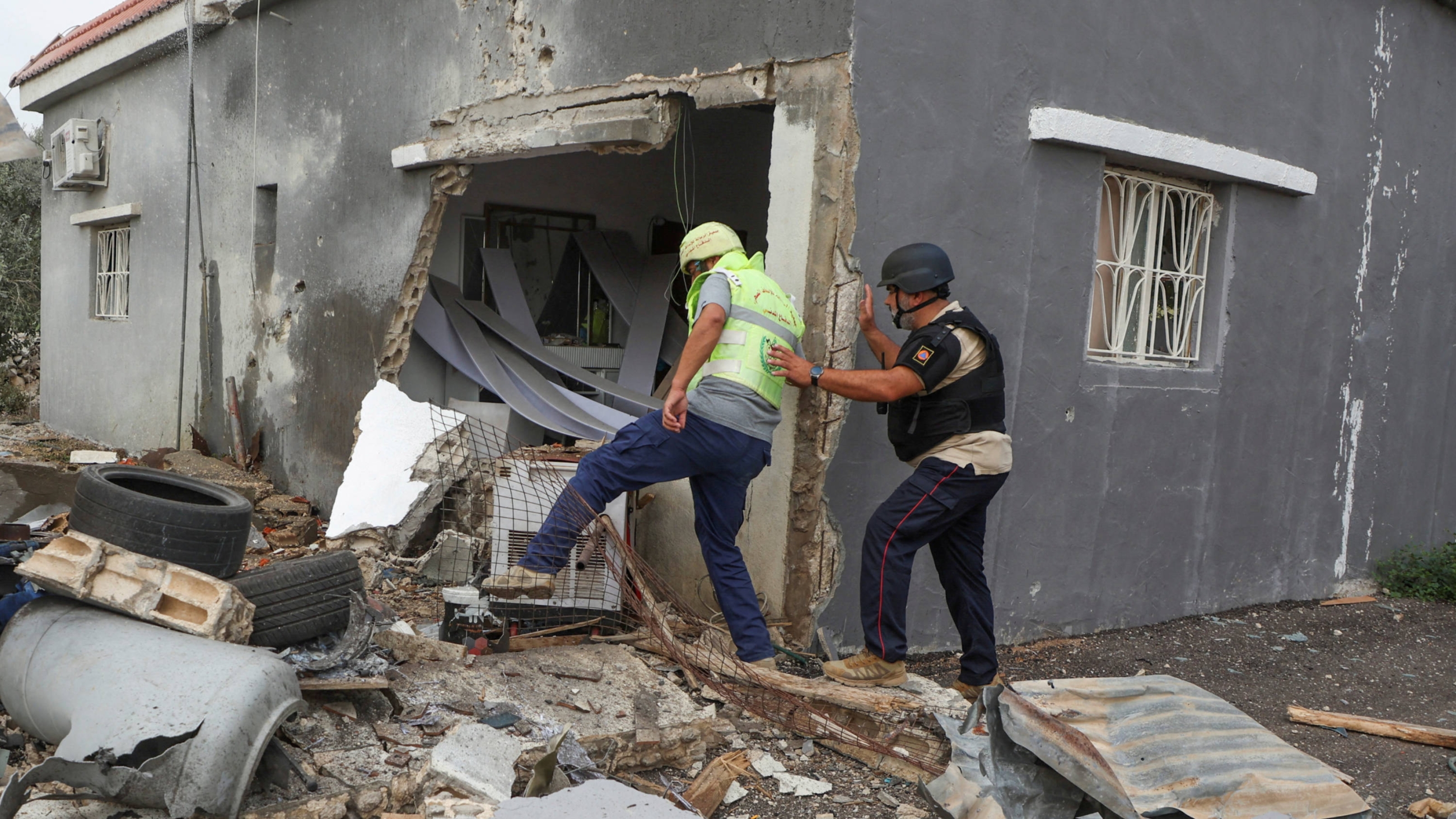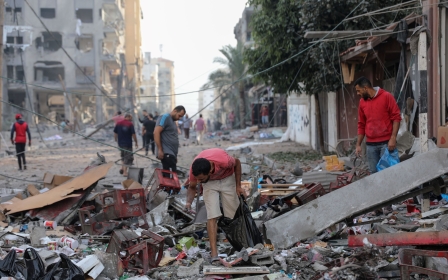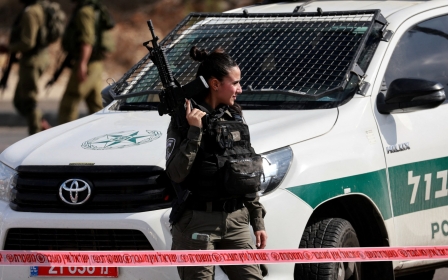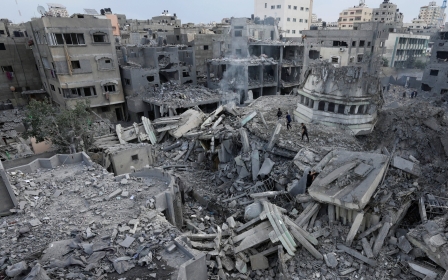Israel-Palestine war: Lebanese flee southern towns as tensions rise

Cross-border violence between Lebanon and Israel has escalated into a fourth day, pushing many Lebanese in southern towns to leave as Hezbollah and the Israeli military continue to trade fire.
Hezbollah said it fired precision missiles on an Israeli position across from the Lebanese town of Dharya on Wednesday, drawing retaliatory Israeli shelling that has left a number of houses damaged.
Tensions have been boiling along the Israeli-Lebanese border since Palestinian fighters launched a surprise multi-front assault on Saturday morning.
The Israeli military has been heavily bombarding the Gaza Strip since, while Palestinian groups have continued to fire thousands of rockets towards Israel. At least 1,055 Palestinians and 1,2oo Israelis have been killed.
Fears have increasingly grown in the last three days that the several rounds of fire exchanged between the powerful Lebanese movement and Israel might lead to a wider confrontation.
New MEE newsletter: Jerusalem Dispatch
Sign up to get the latest insights and analysis on Israel-Palestine, alongside Turkey Unpacked and other MEE newsletters
Hezbollah said its attack on Wednesday was in response to the killing of three of its members in Israeli shelling earlier in the week, vowing "decisive" responses to further attacks on Lebanese, especially if they were deadly.
The group also said that its attack had inflicted a "large number" of casualties among Israeli soldiers, including deaths.
The Israeli military, meanwhile, said that "in response to the anti-tank missile fired at IDF [army] soldiers a short while ago, an IDF aircraft struck a military observation post belonging to the Hezbollah".
Israeli artillery shelled "the area from which the launch originated", the military added.
Residents in south Lebanon told Middle East Eye that many people have fled border towns out of fear that cross-border violence would intensify and lead to an all-out war.
"I have left Bint Jbeil and I'm now staying at my granddaughter's house in the city of Sour just in case. I don't want to be trapped if war breaks," Ahlam told MEE from the southern coastal city, some 80 kilometres from the capital Beirut.
"If the situation worsens, I will go to Beirut. But things are still unclear, so I'm waiting to see what will happen."
Ahlam said that Israeli bombing could clearly be heard from Bint Jbeil, a town a short drive away from the border with Israel.
Just four kilometres away, the streets of Maroun el-Ras village appeared to be empty as people either stayed indoors or have altogether left.
"There is a widespread feeling of anxiety and anticipation in the south right now," one resident told MEE.
Israel and Hezbollah fought a brutal 34-day war in 2006 in which more than 1,200 people, mostly civilians, were killed in Lebanon, and 160 were killed in Israel, the vast majority soldiers.
Both Israel and the United States have warned Hezbollah against opening a second front as the Israeli military battles Hamas in Gaza and southern Israel.
An Israeli military spokesperson said Israel is "prepared for any scenario" and there would be “very severe consequences” if Hezbollah joined the fray.
Middle East Eye delivers independent and unrivalled coverage and analysis of the Middle East, North Africa and beyond. To learn more about republishing this content and the associated fees, please fill out this form. More about MEE can be found here.





